Press Reviews
March 2022
International Media Digest
RUSSIA BULLIES BOSNIA OVER NATO ACCESSION
Through its ambassador in Sarajevo, Moscow suggested it might “react” to any potential threat for Russia deriving from Bosnia and Herzegovina joining NATO. Russia even evoked a ‘Ukrainian scenario’ in the Balkans. At this stage, Bosnia entering NATO is considered an unlikely development due to the strong opposition of the Bosnian Serb political leadership.
Currently, in the Western Balkans, Albania, Montenegro and North Macedonia joined NATO, while Serbia maintains a neutral military policy. Following Russia’s invasion of Ukraine, Kosovo has repeatedly urged the US to create there a permanent military base and help Kosovo’s faster integration into NATO, claiming that Serbia represents for Kosovo and the entire Balkan region a threat, like Russia does with Ukraine. Kosovo’s NATO membership is now “an imperative,” Kosovan President Vjosa Osmani said in March.
If Bosnia and Herzegovina “decides to be a member of any alliance,” including NATO, “that is an internal matter”, but “our response is a different matter. Ukraine’s example shows what we expect. Should there be any threat, we will respond,” Russian Ambassador to Bosnia and Herzegovina Igor Kalbukhov said during an interview with a local Bosnia television. On the same occasion, Kalbukhov denied that Moscow had any plan to destabilize the Balkan country, describing the accusations as “lies and nonsense. We do not have any plans,” but Russia “will respond having analysed the strategic and geopolitical situation” if the situation in Bosnia changes, the Russian ambassador noted.
The words of Kalbukhov did not go unnoticed in Bosnia and Herzegovina and abroad. The threat of a reaction from Russia and its pointing to the example of Ukraine, “is an unequivocal and unacceptable threat to Bosnia and Herzegovina,” the Croatian member of the Bosnian tripartite presidency Zeljko Komsic said. “Bosnia and Herzegovina is a sovereign country that will make decisions about its future independently, based on its Constitution and laws, taking into account the will and interests of its citizens, and not the interests of others. Russia cannot appropriate the right to decide on the future of Bosnia and Herzegovina,” the Bosniak member of the Presidency, Sefik Dzaferovic, reiterated.
“The Russian Ambassador’s latest threats to Bosnia and Herzegovina are dangerous, irresponsible, and unacceptable. No third party has a say in security arrangements between NATO and sovereign countries,” the US Embassy in Sarajevo said. The US diplomacy noted that Washington will “continue to stand firmly by Bosnia and Herzegovina as it takes the necessary steps to secure its place in the Euro-Atlantic community of nations.”
Russian statements on Bosnia’s NATO accession did not reunite a deeply divided country. “I will not accept that any action will be taken against the Russian Ambassador” in Bosnia, the Bosnia Serb leader Milorad Dodik said. Since last year, Dodik has been threatening to withdraw Bosnian Serbs from multi-ethnic central institutions, including the armed forces, with the tacit support of Moscow. “Russia realized that a frozen conflict” in Bosnia “represents a security risk for NATO and the EU. Russia is the biggest advocate for keeping things as they are,” Komsic noted in March.
As a signal of increasing tensions due to the international and internal situation, the EU’s peacekeeping force EUFOR announced the deployment of 500 additional soldiers to Bosnia amid fears the crisis in Ukraine could “potentially cause instability in Bosnia”. France also conducted fast-jet military flights over Bosnia “in light of the deteriorating security situation internationally and as a precautionary measure.” In February, NATO Secretary-General Jens Stoltenberg warned that Moscow could open new fronts by destabilizing “countries like Georgia, Moldova and Bosnia and Herzegovina.”
BULGARIA SUGGESTS A SHIFT FROM RUSSIAN GAS IMPORTS, BELGRADE CONCERNED
Bulgaria, one of the European countries which are more dependent on Russian energy, suggested that it might shift from Russian gas shortly in order to reduce Moscow’s economic and political influence in the country. The move could provoke a chain reaction and tensions in the Western Balkans, particularly in Serbia, which gets a significant part of its Russian gas through Bulgaria.
Amidst the Russian aggression against Ukraine and the world tensions caused by the war, “there cannot be talks” with the Russian state energy giant Gazprom as a part of a common “European strategy” to reduce dependency from Moscow, Bulgarian Deputy Prime Minister Assen Vassilev announced in March. Bulgaria has a 10-years contract with Gazprom currently, expiring in 2022. “We are working on an option without (…) deliveries from Gazprom,” by 2023, Bulgargaz chairman of the Board of Directors Ivan Topchiski said.
Currently, Bulgaria relies on Russia for nearly all its natural gas needs and around 60% of its oil supplies, which is the highest share in Europe. Bulgaria is followed by Poland (80% of gas supplies from Russia), Slovakia, Slovenia, Hungary and Austria (around 60%), Germany and Italy (approximately 40%). Natural gas has been Russia’s most powerful economic leverage in Europe and the Balkans for a long time. Fears are high in the region that Moscow could cut off countries that depend on its gas the most as a retaliation again Western sanctions or use energy to blackmail the more vulnerable European countries.
It is not clear how Bulgaria will concretely pursue its goal to become independent from Russian gas in short time. However, the authorities in Sofia hinted that Bulgaria could accelerate the finalization of a gas interconnector with neighbouring Greece. Furthermore, Sofia could strike deals for additional gas supplies from Azerbaijan and use liquefied gas from the gas terminals already functioning in Greece and Turkey. Bulgaria is also discussing with Greece a possible joint nuclear energy project.
The Bulgarian moves might negatively affect other Balkan countries, in particular Serbia. “Bulgaria has announced that it will stop importing Russian gas; I am not sure that this is so easy to do,” Serbian President Aleksandar Vucic said. “We are simply saying we want Russian gas from the Balkan Stream,” the pipeline that brings Russian gas to Serbia after being transported through the Black Sea.
If Bulgaria stops Russian gas from flowing north, Serbia could still receive a significant part of its supplies through Ukraine and Hungary. Hungary, an EU and NATO member country, is vehemently rejecting EU sanctions on energy shipments. “We will not support sanctions that jeopardize Hungary’s energy security,” Hungarian Foreign Minister Petar Szijjarto said, noting that a consensus among EU members on stopping Russian energy transfers is currently not achievable.
In March, the Kremlin announced a list of “unfriendly countries” that imposed sanctions against Russia and, for this reason, could be subject to reprisals, for instance, by forcing them to pay in roubles the Russian gas. All EU member countries are on the list, including Romania, Bulgaria, Slovenia and Croatia plus, in the Western Balkans, Albania, Montenegro, and North Macedonia.
Further News and Views
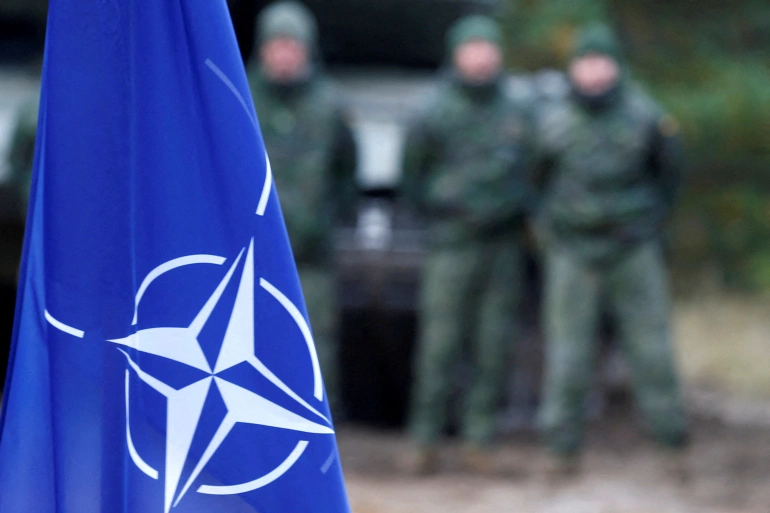
NATO reinforces its Eastern flank, including the Balkans
In light of the Russian aggression against Ukraine and increasing security risks for Europe, NATO said it would reinforce its presence in the Eastern flank, including in Romania and Bulgaria. The Alliance will beef up its defence systems in Central- and Eastern Europe by doubling its battlegroups in Slovakia, Bulgaria, Hungary and Romania as an “immediate response to the Russian invasion,” NATO Secretary-General Jens Stoltenberg said. “We will have eight multinational NATO battle groups along the Eastern flank from the Baltic to the Black Sea,” Stoltenberg told journalists. Around 40.000 NATO troops are currently under direct NATO command in Central- and Eastern Europe; 100.000 US troops are deployed in Europe, with 130 allied aircraft and 140 military ships operative.
Radio Free Europe, New York Times
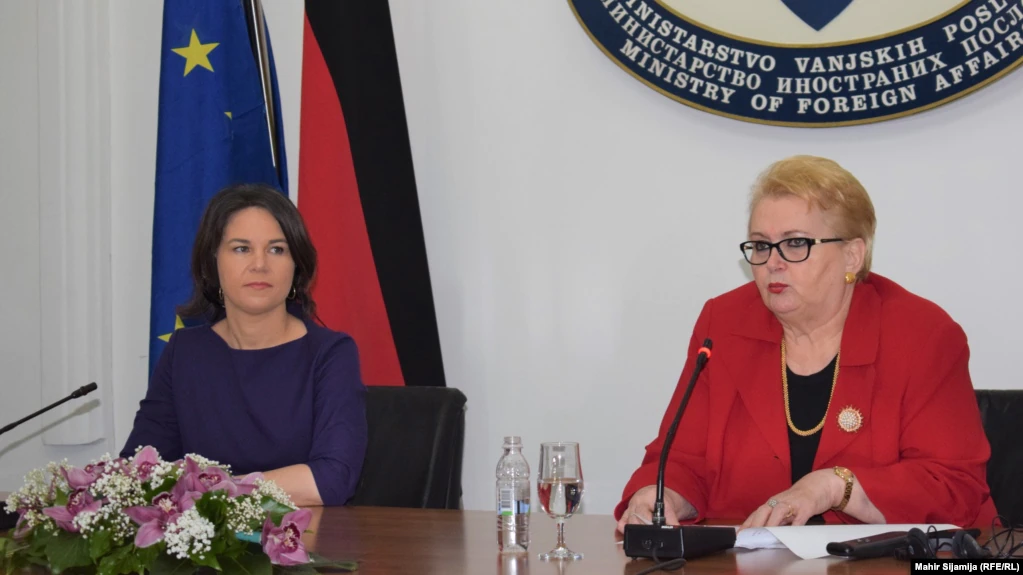
Bosnia asks for EU fast-track membership
The Bosnian Minister of Foreign Affairs and the Bosnian Croat member of the tripartite presidency, Zeljko Komsic, urged the EU to speed up the accession of the Balkan country to the bloc also in light of the Russian aggression against Ukraine. Surprisingly, the request was supported by the Bosnian Serb leader Milorad Dodik. “More than ever, we need European unity and a clear signal that the Western Balkans are part of Europe,” Komsic said. The appeals were welcomed in Brussels, with the EU High Representative for Foreign Affairs, Josep Borrell, confirming that Bosnia “has a credible EU accession perspective.” However, there were no clear signals in March of an acceleration of the EU integration process of Bosnia and Herzegovina and the Western Balkans in general. North Macedonia also said that the EU should urgently unblock the EU integration process with Skopje and Tirana in light of the situation in Ukraine.
Radio Free Europe, N1, BNE Intellinews
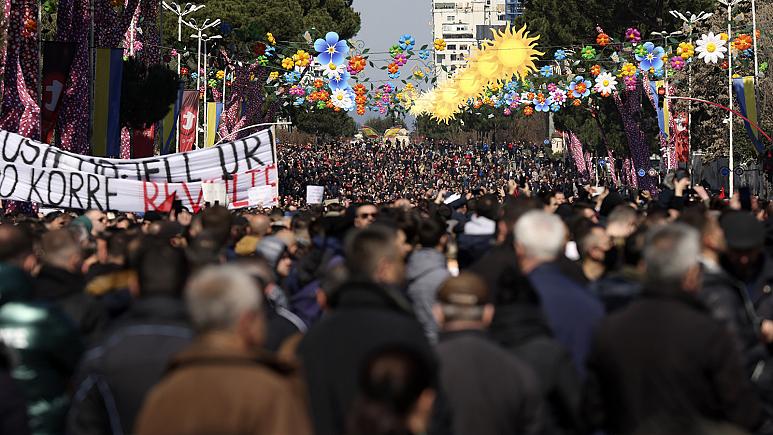
Albania’s protests against the increase in fuel and food prices
Albanians protested several times in March over price increases in food, fuel and energy caused by the Russian aggression against Ukraine. The Albanian National Statistical Institute said that the cost of 30 essential food items and fuel has increased by 40% from January. Similar increases were observed in neighbouring Kosovo, North Macedonia and Montenegro, and other Balkan countries, including Bulgaria. Albanian Prime Minister Edi Rama criticized the protesters. Rama claimed “no one is protesting their government” during an ongoing war as it happened in Albania.
Euractiv, Euronews Albania
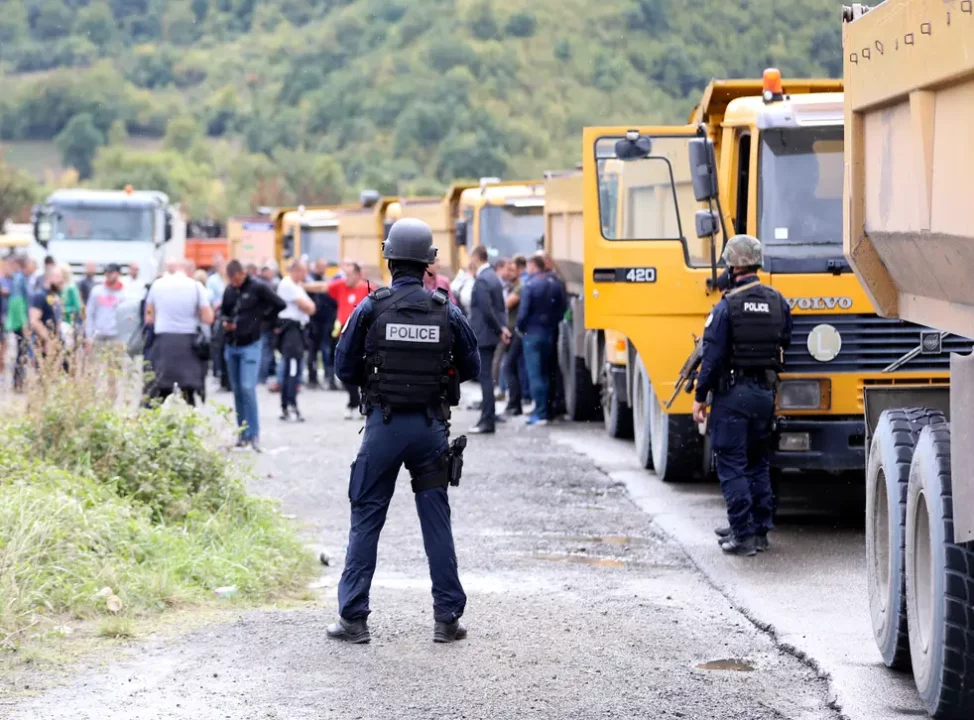
New tensions over Serbian elections obstructed in Kosovo
Kosovo Prime Minister Albin Kurti has refused to allow Kosovo Serbs to cast their votes in their ten municipalities in Kosovo at Serbia’s general elections on April 3. Kurti said that Serbia was “illegally” trying to hold elections in Kosovo “as if our government did not exist”. Belgrade replied by announcing it would organize polling stations for Kosovo Serbs in four cities in Southern Serbia. Pristina’s refusal to allow Serbs to vote in Kosovo irritated the international community. Kosovo has “failed to demonstrate its commitment to the principle of protecting the civil and political rights of all its citizens, including members of minority groups,” French, German, Italian, British and United States (the Quint) ambassadors to Pristina and Belgrade said. Serbs held protests against Kurti’s decision in North Mitrovica and the tension could increase until April 3.
Balkan Insight, Euronews
Monthly Analysis
AHEAD OF THE NATIONAL VOTE,
SERBIA RESIST PRESSURES TO IMPOSE SANCTIONS ON RUSSIA
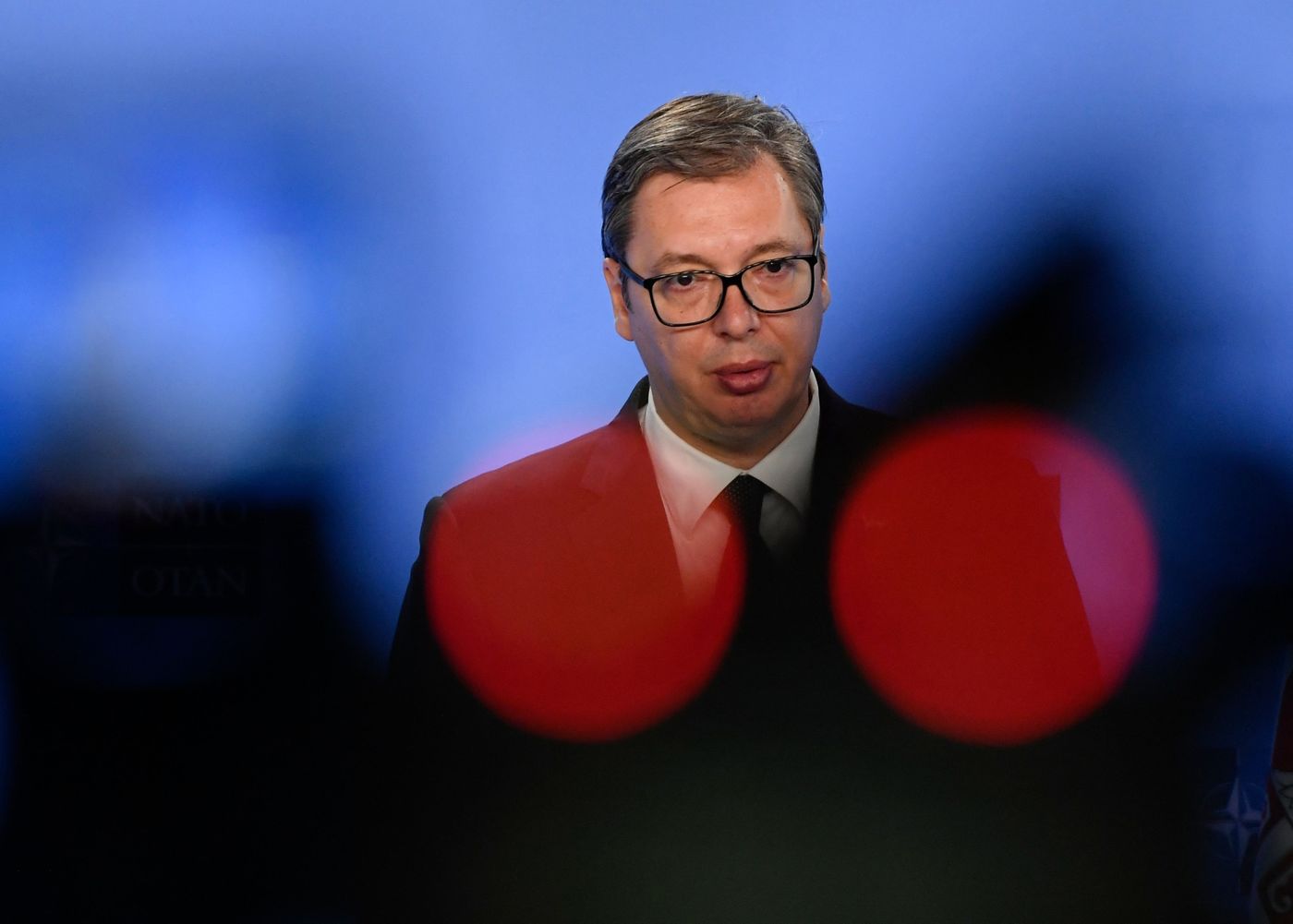
While almost all Balkan countries strongly condemned the Russian aggression against Ukraine (in many cases also imposing sanctions), Russia’s historical ally in the region and at the same time EU candidate country, Serbia, resisted increasing pressures to impose penalties against the Kremlin, hence, raising eyebrows in Brussels and beyond about the genuine will of Belgrade of joining the EU one day. However, there are also signals that Serbia – a traditional conduit between east and west – might distance itself more from Moscow soon.
Serbia’s foreign policy balancing attitude, successful in the previous years, continued during the war in Ukraine, notwithstanding the warnings coming from the EU, the biggest investor in Serbia. “Serbia is not convinced that sanctions are the right answer at the moment, (but) we are making it clear to Serbia what the price will be if the country is on the wrong side of the conflict,” Michael Siebert, director-general of the European External Action Service, said.
“We have a special attitude towards sanctions because we have suffered under serious sanctions. We don’t believe that policy will contribute to resolving the conflict but will punish ordinary people,” Serbian Prime Minister Ana Brnabic indirectly replied. “Russia is the only one protecting Serbia, we have no one else,” former Foreign Minister and currently Head of the Serbian Parliament Ivica Dacic noted. “Serbia is on the European path. That is our strategic commitment, but Serbia will not rush into hostilities” with anyone, including Russia, “because someone else is asking us to,” Serbian President Aleksandar Vucic said.
Vucic has been juggling the former Yugoslav republic’s desire to join the 27-member EU with Serbia’s political and cultural links with Russia. Belgrade is cherishing the Kremlin’s support for its refusal to recognize Kosovo, while the issue is Serbia’s most significant stumbling block in its EU admission negotiations. According to polls, Vucic’s Progressive Party (SNS), which has a sizeable pro-Russian base, is well ahead in the parliamentary election to be held in April. Vucic could easily win a second term in the presidential election, according to all polls.
According to a new Demostat poll, exactly half of respondents believe Serbia should remain neutral in the Ukraine conflict and reject pressure to join western sanctions, even if the country suffers as a result. Another 21% of respondents believe Serbia should “side with Russia,” while only 13% believe Serbia should “side with the European Union and Ukraine.”
There are no signs that Serbian policy towards Moscow will change until the elections, taking into account the strong dependence of Belgrade on Russian gas and the support Moscow enjoys in the Serbian electorate. However, while pressures are increasing from the EU and the US to force Belgrade to change its course, Serbia did make some surprising steps this month. The Balkan country was among more than 140 nations that condemned Russia’s invasion at the UN General Assembly by voting a resolution that reaffirmed “commitment to the sovereignty, independence, unity and territorial integrity of Ukraine within its internationally recognized borders.” The resolution also deplored “in the strongest terms the aggression by the Russian Federation against Ukraine” and asked Moscow to “immediately cease its use of force.”
At this stage, it is not clear if Belgrade will succeed in preserving its balanced and ambiguous foreign policy much longer, in particular after the 3rd of April elections, if the Russian aggression against Ukraine continues or become more violent. Furthermore, Serbia could be severely hit by an energy crisis by May. The Serbian energy giant Nis, indeed, is controlled by the Russian Gazprom. From May 15, the oil deliveries through the Janaf pipeline, from Croatia to Serbia, could be stopped due to European sanctions against Russian firms, leaving Belgrade without oil supplies.
Apart from Serbia, Bosnia and Herzegovina did not also impose sanctions against Russia because of the opposition of the Bosnian Serb leadership, which is very close to Moscow and Belgrade. EU, G7 ambassadors asked Sarajevo to impose sanctions against Russia at the end of March, with Bosnian Presidency Chairman Sefik Dzaferovic confirming he had already asked the Council of Ministers to meet the obligations and implement restrictive measures already implemented by the European Union.
The Insight Angle
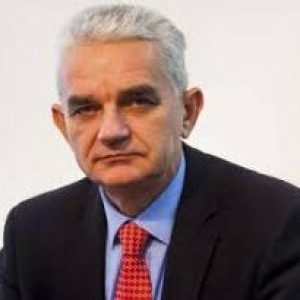
OLEKSIY MELNYK
Co-Director, Foreign Relations and International Security Programmes, Razumkov Centre (Kyiv)
Europe is observing the Russian aggression against Ukraine in deep disbelief. What are the real reasons behind the war that Mr. Putin decided to wage?
Putin openly and repetitively declared his reasons for war against Ukraine well before and in the day of invasion – his personal reasons. These reasons have very little to do with a reality and none of them or all together should be considered as a justification for the war. And attempts to find rationale in the Putin’s accusations of the West or Ukraine for provoking this war are distracting our attention from other more important questions. These questions are: Why has the war in Europe become possible? And what needs to be done to make it impossible in future?
Which will be the long terms consequences of the war, both for Ukraine, for Russia and for Central- and Eastern Europe and the Balkans?
The long-term perspectives for many Ukrainians nowadays in the cities of Mariupol, Kharkiv and Chernihiv are measured by days or even hours. Many hard days and months are still ahead for Ukraine in general. Ukraine both as a state and as a political nation has already demonstrated the strong will to fight for its future. However, it is still too early to talk about the end of wat and formats of a peace agreement to be achieved. Ukraine will definitely remain on the European course of development and a part of the Western civilisation. Ukraine’s relations with Russia will hardly improve above a peaceful coexistence for many years.
Russia will pay the price for Putin’s actions for decades. There will be no quick return to business as usual like it had happened back in 2008 after the war in Georgia. It is highly likely that Russia will have to go around back to the situation of early 1990th and try to avoid its own mistakes after Putin – if the Russian Federation remain in its current geographical borders.
The NATO Secretary-General warned that Moscow could try to destabilize also other regions apart from Ukraine, mentioning in particular Moldova, Georgia, but also Bosnia and Herzegovina. Do you think this is a concrete risk?
If Russia is not stopped in Ukraine, it will definitely will go further. Moldova and Georgia have plenty of reasons to be afraid of the Putin’s idea to reanimate a Russian Empire. There are many international actors watching carefully the developments in Ukraine and around. This war will definitely affect many potential hot spots in one way or another depending on its outcomes. No doubt, there is a number of actors who are watching this conflict carefully and learning lessons to be copied or avoided.
The Russian strategic defeat is important. If a so-called “Russian factor” is neutralised or weakened significantly, a great number of existing or potential crises – where Russia plays mostly destabilising role – will definitely lose their impetus at least.
In Bosnia, the Bosnian Serb leadership used in the past its strong relationship with Moscow to push towards a secessionist policy, with the tacit support from Moscow. Deeper isolation of Russia and the long-term consequences of sanctions for the Russian economy might push the Bosnian Serbs to a more moderate position. Likewise, lesser Russian resources might make official Belgrade to reconsider possible risks and benefits of playing the role of either the Russian stronghold in the region or rather taking the side with the EU.
Ukraine has asked the EU to become a bloc member. Georgia and Moldova are hoping for the same, while the Balkans are still kept out from the Union, although the process of integration is ongoing since decades. Do you think an immediate EU integration of all those countries could be a solution for a long-term stabilization of the Balkans and beyond?
Ukraine has deserved to be integrated in the EU through exceptional and simplified procedure. I am not sure that all the EU member states will welcome this idea and it will be even more problematic if Georgia and Moldova are included in a package. Moreover, the idea of fast integration of the whole Balkans as a key to the long-term stabilisation of the region seems to be rather idealistic. The main issue is the EU itself, which still needs to fix the Brexit aftershocks and to deal with internal destabilising challenges.

Stefano Giantin
Journalist based in the Balkans since 2005, he covers Central- and Eastern Europe for a wide range of media outlets, including the Italian national news agency ANSA, and the dailies La Stampa and Il Piccolo.

